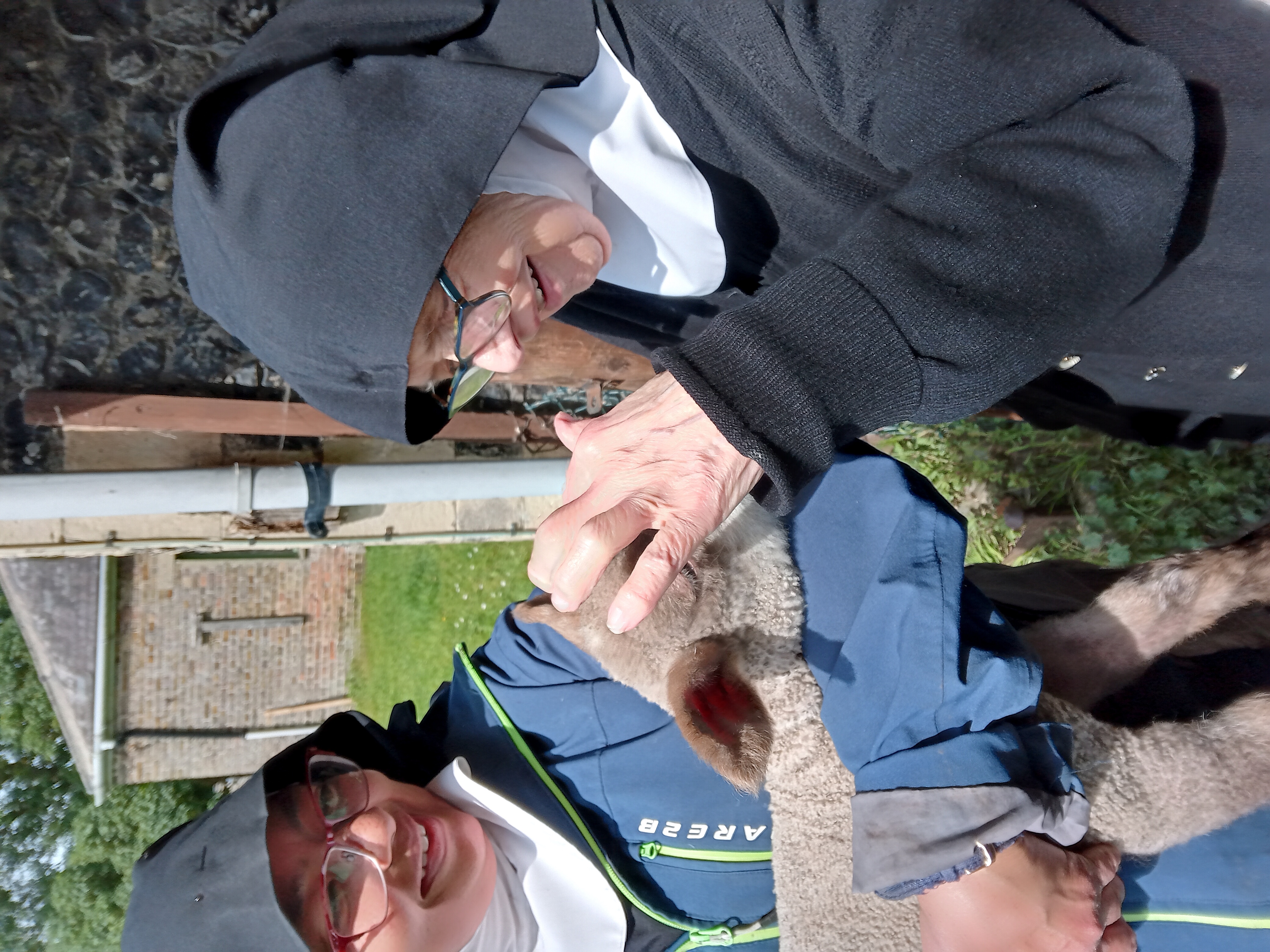Tell Me, What do you Think?

It’s Advent as I write this. We will celebrate the Nativity of Our Lord very soon, but I always find that I can’t project myself into Christmas until the moment Midnight Mass begins. Until then, my mind and spirit are immersed in Advent, the time of preparation for the feast of the Incarnation. That’s what I want to talk about here: a way to prepare in spirit, with the help of a few words I will now treasure, and which I fully discovered only days ago when I was prayerfully reading the Gospel of Matthew.
Jesus begins the parable of the lost sheep in Matthew’s Gospel with the words, “Tell me,” or, in other translations, “What do you think?” (see 18:12-14). I’ve read this passage of Matthew many times, but when I was reading it this time, those words seemed to demand my attention in a new way. This happens often when I read Holy Scripture. A passage or even just a word I’d never particularly noticed before will suddenly come alive.
“What do you think?” Jesus asks. He’s about to teach his disciples something through a parable, but He doesn’t just sail into His parable without preparing his students. Indeed, He invites them to get involved, to use their heads.
I am immediately intrigued. I’m even a little surprised. ‘Wow,’ I think. ‘ Jesus wants to know what His disciples think about what He’s going to say.’ I have often marvelled over Jesus’ power to teach, and here I note that He is not one of those teachers who love the sound of their own voice: He doesn’t want to lecture, He wants to dialogue. So He begins His teaching in this passage with words of engagement. He is reaching out.
I ponder this as I read the next part of the passage. Jesus is teaching about the Good Shepherd: the one sheep who gets lost, He explains, is so important to the Good Shepherd that he leaves the ninety-nine sheep in order to look for the stray. I know this parable well but today, everything’s different and new.
Jesus, I see, is not only talking about a good shepherd seeking the stray sheep. Jesus is, at the same time, being the Good Shepherd, because the words, “Tell me!” or “What do you think?” are ‘Good Shepherd words,’
words that look for people; they are words that search for a deeper relationship with us. He knows that relationships deepen only through a mutual exchange between persons on a profoundly personal level. We know that Jesus, in every word and deed, opened Himself to us, emptied Himself for us. Here, He invites us to open ourselves to Him, and He does this by asking us about our thoughts, our reactions, our feelings, our inner world—He’s asking about what makes us uniquely ourselves. “Tell me,” the Good Shepherd, says. “What do you think?”
My meditation goes on. I recognize that if I tell Jesus what I think, He is supremely able to ‘handle’ anything I may say: good, bad, puzzled, anxious, uncomprehending; whatever it is, He can deal with it. He will address my concerns seriously. I know this not only because there are many gospel passages where He does this for those who come to Him, but because I’ve experienced it in my life. No matter what’s going on for me, if I tell Him about it, just talk to Him, naturally, honestly, then understanding eventually comes to me. When I talk to Him, tell him what I think, He is there.
Today, through this reflection on only a few words of Holy Scripture, I know this in a new way; it is as though Jesus is assuring me that this is indeed how He works. I become more grateful as I realize this. Jesus is the Good Shepherd. He searches for us by drawing us out. ‘Tell me,’ He says to us, ‘What do you think?’
What does this have to do with Christmas or Advent? A lot. During this season we’re pondering the meaning of the Incarnation of God in Jesus. To put it another way, we’re trying to understand something deeper about the ‘humanity’ of God. And we’re trying, above all, to deepen our love of God. These few words of Jesus show us a way forward ‘What do you think?’ God Himself became a man in order to find out.
This reflection was published in Agape Review in December 2022.

